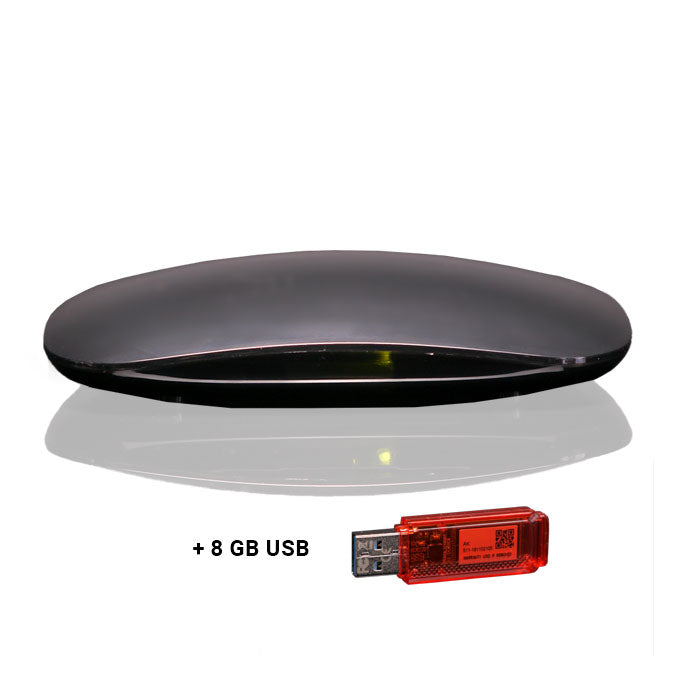DVRs, or Digital Video Recorders, are devices that allow users to record television broadcasts onto a hard drive for later viewing. These devices have revolutionized the way people watch television by giving them the ability to pause, rewind, and fast forward live TV. With DVRs, you no longer have to worry about missing your favorite shows or sports events. Instead of relying on traditional VHS tapes or streaming services, DVRs provide a way to store content directly from the TV for easy access.
Key Features of a DVR for TV
When selecting a DVR, there are several important features to consider. Storage capacity is one of the most crucial aspects since it determines how many shows you can record. The best DVRs offer large storage capacities, often over 500GB, which allows for plenty of content to be stored. Another key feature is the ability to record multiple shows at once. High-end DVRs support multi-tuner systems, allowing users to record several channels simultaneously without interrupting their viewing experience.
How to Choose the Right DVR for Your Needs
Choosing the right DVR for TV depends on your personal preferences and viewing habits. For instance, if you often watch live sports or have a busy schedule, a DVR with advanced features like the ability to record multiple shows at once or stream content to other devices can be a game changer. Also, consider the brand and model’s user interface. Some DVRs offer easy-to-navigate menus and advanced recording options, while others might have a more basic setup.
The Benefits of Using DVRs for TV Recording
One of the primary benefits of DVRs is the ability to pause live TV. Whether you’re answering the phone, taking a break, or simply need to rewind to catch something you missed, DVRs make this possible. Additionally, DVRs enable users to record shows without worrying about conflicting schedules. You can record one program while watching another or record multiple programs at once. Another great benefit is the convenience of ad skipping. Some advanced DVRs even allow users to automatically skip ads, providing a smoother and faster viewing experience.
Differences Between DVRs and Other Recording Devices
DVRs differ from other recording devices like VHS tapes or DVD recorders in many ways. Unlike VHS, DVRs use hard drives or cloud storage, meaning there's no need for physical tapes or discs. This allows for easier and faster access to your recorded content. Additionally, while DVD recorders offer limited recording times, DVRs provide much larger storage capacities, allowing you to record and keep more content over time.
Setting Up Your DVR for Seamless Recording
Setting up a DVR is generally a straightforward process, but it does require some technical knowledge. Typically, you’ll need to connect the DVR to your TV and cable box or satellite receiver, depending on your service provider. After installation, you will configure the settings for recording, including setting up a schedule for your shows or adjusting preferences for resolution and storage space. Many DVRs come with user manuals and on-screen guides to make the setup process even easier.
Can You Use DVRs With Streaming Services?
Many modern DVRs can integrate with streaming services, allowing users to record content from their favorite platforms. Some DVRs even feature apps or integrated software for streaming services like Netflix, Hulu, and Amazon Prime Video. This functionality helps users combine their traditional TV watching experience with the flexibility of on-demand streaming, making it easier to manage all of their content in one place.
DVR vs. Cloud DVR: What’s the Difference?
Traditional DVRs use physical hard drives to store content, whereas Cloud DVRs rely on remote servers to store recorded content. The key advantage of Cloud DVRs is that they allow you to access your recordings from multiple devices, such as tablets, smartphones, or other TVs. This flexibility makes Cloud DVRs particularly attractive for people on the go. However, traditional DVRs generally offer faster access to content since there’s no need for an internet connection.
How to Maximize the Storage Space on Your DVR
Maximizing storage space on your DVR is important, especially if you record a lot of content. Some DVRs allow users to manage storage by deleting old or unneeded shows automatically after a set period. You can also manually delete recordings you no longer need. In some cases, external hard drives can be connected to expand the DVR’s storage capacity. This is especially useful if you have a large collection of shows or movies that you want to keep.
The Impact of DVRs on Cable and Satellite TV
The introduction of DVRs has had a significant impact on the cable and satellite TV industries. By offering greater control over when and how people watch content, DVRs have shifted viewing habits toward on-demand experiences. Consumers can now avoid commercials, skip ahead, and pause shows, making traditional TV networks rethink how they distribute content. In response, many service providers now offer DVRs as part of their packages, often promoting their ability to record and store TV shows for a set period.
Troubleshooting Common DVR Issues
DVRs are typically reliable, but like any electronic device, they can encounter issues. One common problem is the DVR freezing or becoming unresponsive. This can usually be resolved by restarting the device or resetting it to factory settings. Another frequent issue is recording conflicts, which can happen when two or more programs are scheduled to record at the same time. To avoid this, check your DVR’s settings and make sure you’re using a DVR with enough tuners to handle multiple recordings simultaneously.
The Future of DVRs: Innovations to Look Out For
The future of DVRs is evolving with advancements in technology. One exciting development is the integration of artificial intelligence (AI) to help suggest content based on viewing habits. AI-powered DVRs could provide more personalized recommendations and even automatically record shows you might like based on your interests. Additionally, advancements in cloud storage are expected to make DVRs more portable and flexible, allowing users to store and access content from anywhere in the world.
The Cost of DVRs: Is It Worth It?
The cost of a DVR can vary depending on the features and storage capacity. Basic DVR models may cost as little as $50, while more advanced units with large storage and additional features may run several hundred dollars. The good news is that many service providers offer DVRs as part of their cable or satellite packages, so if you’re already subscribed to a service, you may be able to get a DVR for a low monthly fee. Considering the convenience and flexibility that DVRs provide, they are generally considered a worthwhile investment for TV enthusiasts.
FAQS
What is the best DVR for recording multiple shows at once?
The best DVRs for recording multiple shows are those with multiple tuners. Look for models that support at least 4 tuners for the ability to record several channels simultaneously.
Can DVRs record streaming content?
Some DVRs are compatible with streaming services and can record content from platforms like Netflix and Hulu, allowing for a unified recording experience.
How long can a DVR store recordings?
The length of time a DVR can store recordings depends on its storage capacity. DVRs with larger hard drives can store hundreds of hours of TV content, while smaller models may only hold a few dozen hours.








